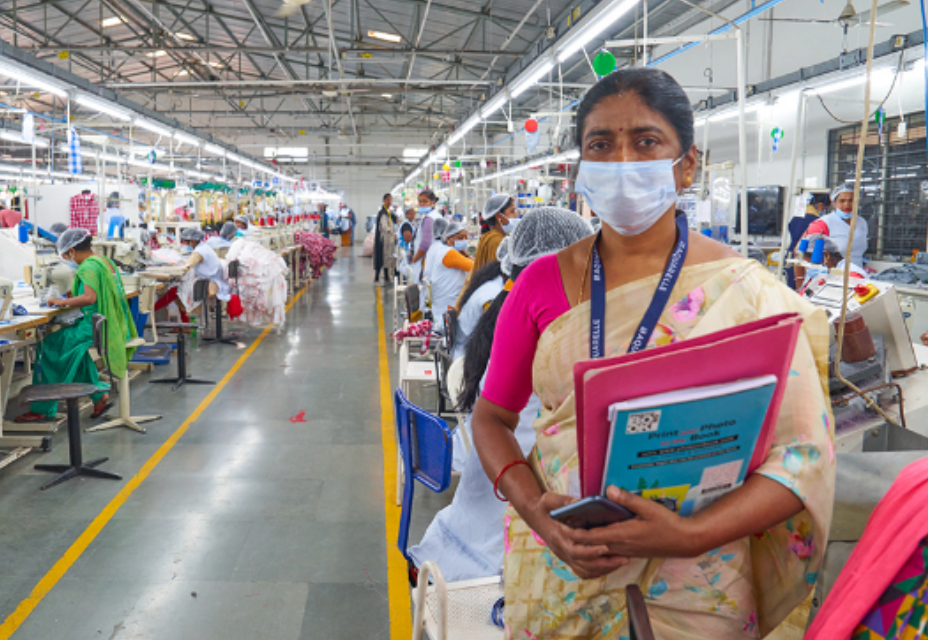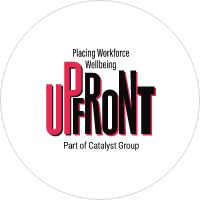By Shaonli Chakraborty, CEO, Upfront and member of UNFPA’s Coalition for Reproductive Justice in Business.M.
“Almost 49% of the world’s population are women and yet workplaces are not built or operated keeping women in mind” – UNFPA. UNFPA’s policy paper “Advancing sexual and reproductive health and rights in the private sector – the case for action and accountability in the workplace” pioneers in promoting comprehensive actions by Private Sectors at the global level.
India stands at the cusp of a transformative era of gender equality within the workforce. However, despite remarkable strides across various sectors, the participation of women remains alarmingly low at around 20%. The key to unlocking this untapped potential and improving wellbeing of women workers lies in integrating Sexual and Reproductive Health and Rights (SRHR) into workplace policies, a move that promises to be a game-changer for the nation’s economic and social landscape.
India can show the way for workforce empowerment by making workplaces supportive and inclusive. When private sector companies start integrating SRHR into policies, they take a powerful step towards achieving a transformative positive impact on the workforce and bottom line. Wellbeing programmes for factory workers are crucial in this context.
It is critical to recognise that the private sector is a powerful catalyst for change and has an important role to play in driving this transformation. By adopting gender-sensitive recruitment practices, nurturing inclusive workplace cultures, and investing in leadership development for women, businesses can set a powerful example. Additionally, providing supportive health education, care services, and access to family planning and menstrual health management information can significantly impact women’s participation and productivity.
Creating a supportive environment for women in the workforce has tangible benefits. Companies that address SRHR see a notable increase in productivity, often up to 15%. Furthermore, supporting SRHR leads to reduced absenteeism and turnover, contributing to a more stable and committed workforce. Social protection schemes for workers also play a vital role in this regard.
There are 6 steps the private sector can consciously take in order to empower India’s workforce:
1. SRHR is the foundation for empowerment – The lack of access to SRHR services, childcare, and adequate workplace support are significant barriers to women’s full participation in the workforce. On the other hand, when women have access to reproductive healthcare and family planning services, their wellbeing improves, and so do their economic prospects. Prioritising SRHR can effectively dismantle health-related obstacles that hinder women’s sustained employment, fostering a more inclusive and productive work environment.
2. The Care Economy: Supporting Women at Work – The care economy, which includes both paid and unpaid care work, plays a pivotal role in enabling women’s workforce participation. Investing in affordable childcare, eldercare, and policies that recognise and redistribute caregiving responsibilities can significantly alleviate the burdens on women, thereby enhancing their ability to contribute to the economy. Such investments are not just socially responsible but also economically prudent, fueling broader economic growth.
3. Comprehensive Social Protection and Health Services – Robust social protection measures are essential to safeguard women’s economic security. Strengthening maternity benefits, implementing gender-responsive social security schemes, and expanding health coverage can create an environment where women feel supported and valued. These measures are fundamental to building a workplace that fosters gender equality.
4. Fostering Inclusive Workplaces – Creating effective gender equality policies, such as flexible work arrangements, equal pay, and a zero-tolerance stance on discrimination and harassment, is indispensable. Community initiatives that raise awareness, provide vocational training, and support female entrepreneurship are equally important in empowering women. By fostering an inclusive culture, businesses can attract and retain female talent, thereby enhancing their overall performance. Women’s workforce resilience and empowerment are key components of this strategy.
5. Creating a Supportive Ecosystem – For SRHR initiatives to be effective, companies must cultivate a culture of awareness and support through women empowerment programmes. This includes regular training sessions, accessible resources, continuous dialogue, and confidential counselling services. Companies such as Infosys, Tata Steel, Wipro, and Zomato are already setting benchmarks with their progressive policies and initiatives.
6. Measuring and Reporting Progress – Tracking progress through standardised SRHR metrics is vital for evaluating program effectiveness and making data-driven improvements. Regular measurement and transparent reporting can ensure that these initiatives are on the right path and achieving desired outcomes.
This said, collaboration is crucial. Collaboration between the private sector, civil society, and government is essential to amplify efforts towards creating equitable workplaces. By working together, these stakeholders can build a robust ecosystem that supports SRHR initiatives and fosters gender equality.
To unlock the full potential of India’s female workforce, a multifaceted approach is required. Integrating SRHR into workplace policies, strengthening the care economy, expanding social protections, and fostering private sector involvement are crucial steps. By embracing these initiatives, India can not only achieve gender parity but also realise substantial economic growth and social inclusivity. Together, we can build a brighter future for everyone.
Author Bio:
Shaonli Chakraborty, CEO, UpFront – a global south entity, part of the Catalyst Group of organisations, driving significant impactful sustainable solutions, particularly for front-line workers and their ecosystems. Shaonli is a gender expert and member of UNFPA’s Coalition for Reproductive Justice in Business: Mobilising the Private Sector for Women’s Health and Rights and here she writes a call to action for Indian businesses to pave the way.


